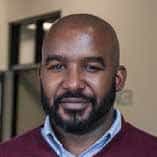
Family was one of the most important concepts in Hebrew life. But they understood family differently from our modern idea. In America, we find our identity in our ability to choose what we want to do and who we want to be in relationship with. In Hebrew culture, identity was derived primarily from being a part of a family, of being a part of something that was bigger than an individual. That idea of choosing to be part of a family was a foreign concept to them. So much so that they didn’t even have a word that fully correlates with our English definition of family.

Terrell Carter
This is likely what’s stored in the back of everyone’s minds while Jesus is busy teaching in Matthew 12. But before Jesus’s teaching is complete, he will challenge their long-held notion of what family means. As usual, in Matthew 12, Jesus was being challenged on his teachings by the religious leaders of the day.
The narrative of the chapter is framed around Jesus, the righteous one, performing multiple miracles and good deeds by the power of God, only to be accused of being unrighteous by those who thought they were righteous but were too beholden to their unrighteous self-interests to see that Jesus was doing God’s will.
While Jesus was in a home teaching, his relatives arrived, hoping to rescue him from the religious leaders because they were afraid of what they might do to him and because they thought that what he was doing would embarrass them. But the crowd listening to Jesus teach was so big that his family members couldn’t get to him. So, they sent someone to tell him that they were waiting to talk to him.
Jesus’s response to their arrival was truly revolutionary. He said that his family members were not those related to him by blood but those who were willing to join him in doing the will of God.

Image by Reimund Bertrams from Pixabay
Jesus wasn’t being disrespectful. He was trying to get everyone to understand that God was doing something new through him and them. He was trying to get them to understand that in God’s kingdom, family wasn’t primarily about ethnic identity or blood but about willingness and devotion to live into the will of God revealed through him.
This new understanding of God’s family didn’t end with Jesus. His disciples, after finally understanding what Jesus had been teaching, began to use the same imagery as they led the early church. Multiple New Testament writers use the same imagery to describe God’s understanding of how members of the body should relate to one another. So much so that, although the New Testament writers began calling members of the church disciples, they eventually dropped that word and began to use the words “brother” and “sister.” Family became the word that most described members of God’s church.
We can continue the legacy that began with Jesus and continued with his disciples. We don’t have to see each other as strangers or interact with each other primarily from a political or social standpoint. Instead, we can treat each other as brothers and sisters who share a common calling to live as Jesus lived and actively reflect God’s love for all humankind.



